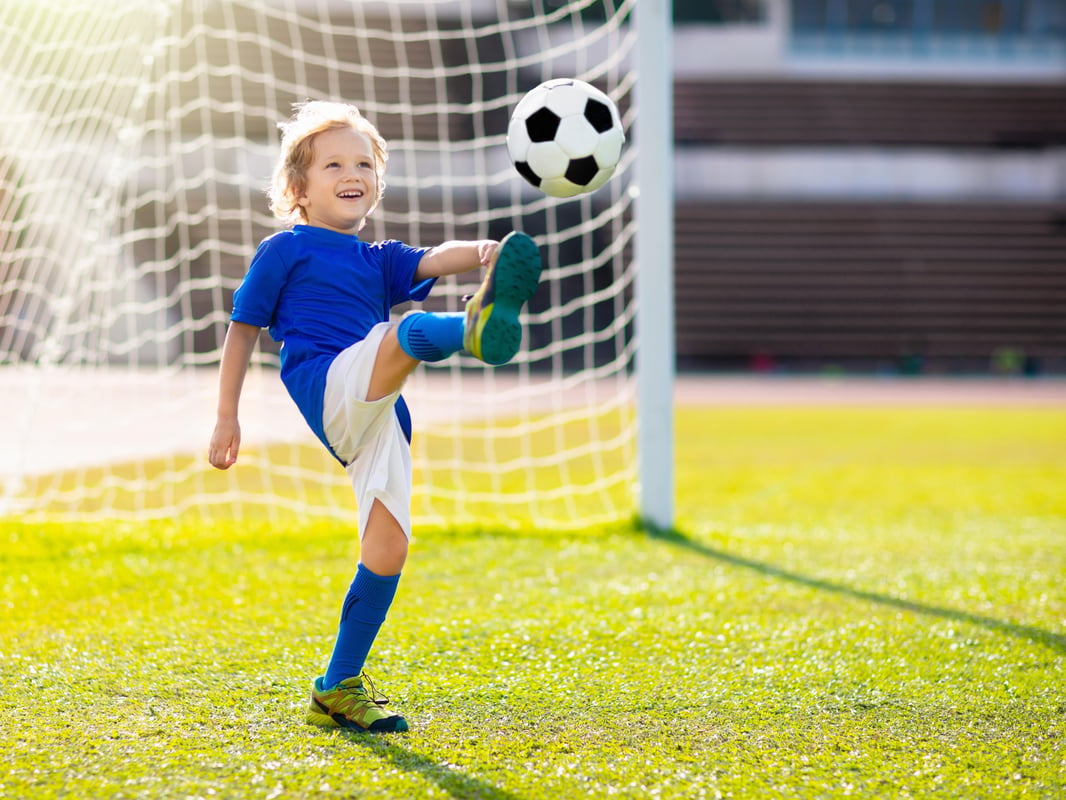Gearing Up for Kids’ Sports Season? Put Safety First

SATURDAY, March 4, 2023 (HealthDay News) -- Playing sports can be good for kids of all abilities.
A leading medical organization offers some tips for getting children involved, while helping keep them safe and injury-free.
“We encourage children to play a variety of sports, both to increase their enjoyment over time and to avoid injuries we often see with overuse,” said Dr. Alison Brooks, chair of the American Academy of Pediatrics (AAP) Council on Sports Medicine and Fitness.
“Parents can play a big role in influencing their children to play sports that are appropriate for their age, development and physical abilities,” Brooks explained in an AAP news release.
Sports help kids stay fit and feel good about themselves, the AAP noted.
Pediatricians also encourage young people with disabilities to participate in sports, recreation and physical activities whenever possible, the academy added.
Among the many benefits of playing sports are improved physical and mental health; better social skills and relationships; enhanced well-being and self-esteem; and improved sleep and behavior.
Still, all sports do have risks of injuries.
Among the most frequent ones are sprains, which are injuries to ligaments; strains, which are injuries to muscles; growth plate irritation; and stress fractures.
The AAP recommends having a doctor evaluate tenderness over a bone in a growing child even if there is minimal swelling or limitation in motion.
Here are some tips to reduce the likelihood of injury:
- Plan at least one day off per week for recovery and at least one month off per year from training for a particular sport to allow the body to recover.
- Be sure your child wears appropriate protective gear and that it fits properly. This can include helmets, mouthpieces, face guards, protective cups, eyewear, and pads for the neck, shoulders, elbows, chest, knees and shins. Don’t assume that protective gear will prevent all injuries in more dangerous or risky activities.
- Condition muscles during practice to strengthen them.
- Be sure to stretch after games or practice to increase flexibility and make stretching part of a daily fitness regimen.
- Take breaks during practice and games to reduce injuries and prevent heat illness.
- Maintain and follow safety rules — for example, don't slide head first in baseball and softball, don't spear in football and no checking in hockey.
- If there is pain, stop the activity.
- Drink plenty of fluids before, during and after exercise or play to help avoid heat injury. Decrease or stop practices or competitions when it is very hot or humid. Wear light clothing.
“Young athletes should be judged on effort, sportsmanship and hard work,” Brooks said. “They should be rewarded for trying hard and for improving their skills rather than punished or criticized for losing a game or competition. The main goal should be to have fun and learn lifelong physical activity skills.”
More information
The U.S. Centers for Disease Control and Prevention has more on children and physical activity.
SOURCE: American Academy of Pediatrics, news release, March 2, 2023
Related Posts
Many Patients Aren’t Getting Best Quality Lung Cancer Surgery: Study
MONDAY, Jan. 23, 2023 (HealthDay News) -- A surgeon's skill has a direct impact...
Low-Dose CT Scans Can Diagnose Appendicitis
MONDAY, Nov. 15, 2021 (HealthDay News) -- CT scans expose patients to radiation...
¿Podría la metformina ayudar a los adultos mayores a recuperarse de una cirugía?
VIERNES, 28 de julio de 2023 (HealthDay News) -- La metformina, un medicamento...
Retinal Layer Thinning May Predict Relapse Remission in MS
THURSDAY, Aug. 18, 2022 (HealthDay News) -- Retinal layer thinning after optic...
